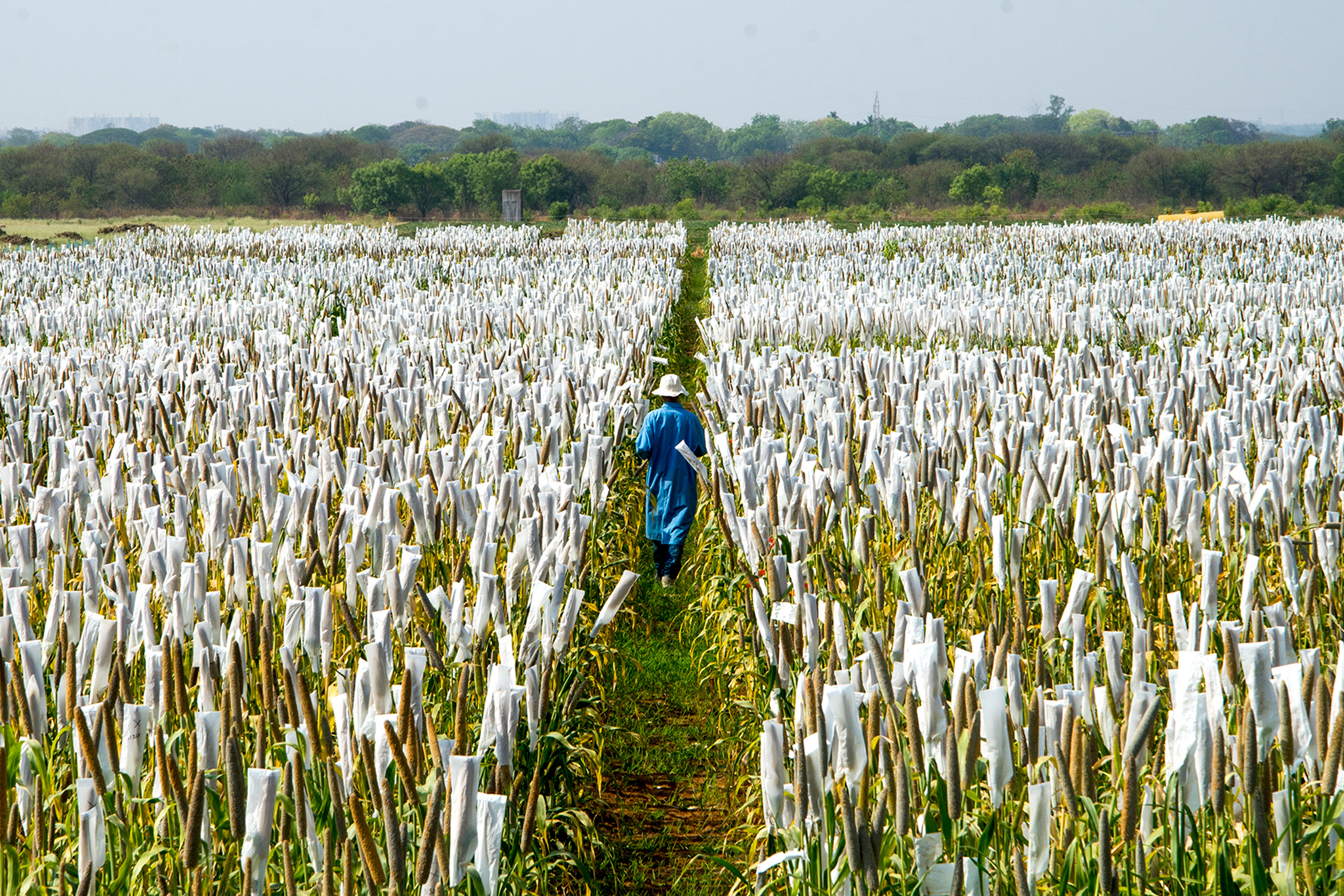The Accelerated Breeding Cluster at ICRISAT harnesses a wide array of advanced tools and technologies to drive its innovative and impactful breeding program. These tools enable us to develop improved crop varieties that address the challenges of hunger, poverty, malnutrition, environmental degradation, and climate change.

Rapid-Gen Advancement Facility (RGA): Our breeding pipeline benefits from the state-of-the-art RGA facility, which accelerates the development of new cultivars. By optimizing breeding cycles and reducing time and cost requirements, the RGA facility allows us to bring improved varieties to farmers more efficiently.
Phenotyping Facilities: We utilize cutting-edge phenotyping facilities to assess plant traits and performance. These facilities include the Automatic Rainout Shelter, which simulates drought stress conditions, and the LeasyScan and LysiField systems, which enable non-invasive, high-throughput phenotyping of plant roots. These tools provide valuable insights into crop responses to environmental stresses and aid in the selection of resilient varieties.
Integrated Genomics and Marker-Assisted Selection (MAS): By integrating genomics into our breeding pipeline, we can analyze the genetic composition of crops and identify markers associated with desirable traits. This enables us to accelerate the breeding process, select plants with improved characteristics, and develop varieties with enhanced yield potential, disease resistance, and nutritional qualities.
Breeding for Pest and Disease Resistance: We employ advanced techniques to breed for resistance to pests and diseases. This includes utilizing molecular markers to identify and select plants with natural resistance genes. By incorporating these resistant traits into our breeding programs, we develop crop varieties that are better equipped to withstand the challenges posed by pests and diseases.
Germplasm and Genetic Resource Management: ICRISAT's Accelerated Breeding Department maintains an extensive germplasm collection, preserving valuable genetic resources for future breeding efforts. We employ advanced germplasm management tools and techniques to ensure the conservation, characterization, and utilization of diverse genetic materials.
Data Analytics and Modeling: Our breeding program leverages data analytics and modeling approaches to analyze vast amounts of breeding data, predict crop performance, and optimize breeding strategies. By harnessing the power of data-driven insights, we make informed decisions and continually improve the efficiency and effectiveness of our breeding efforts.